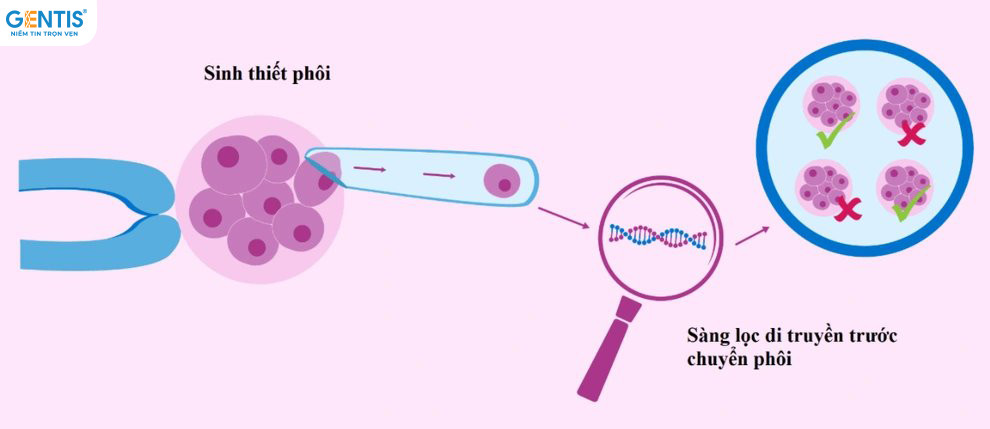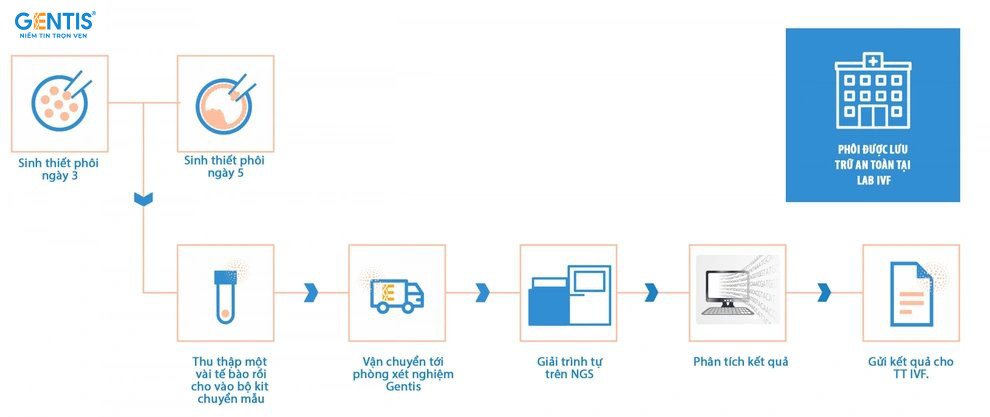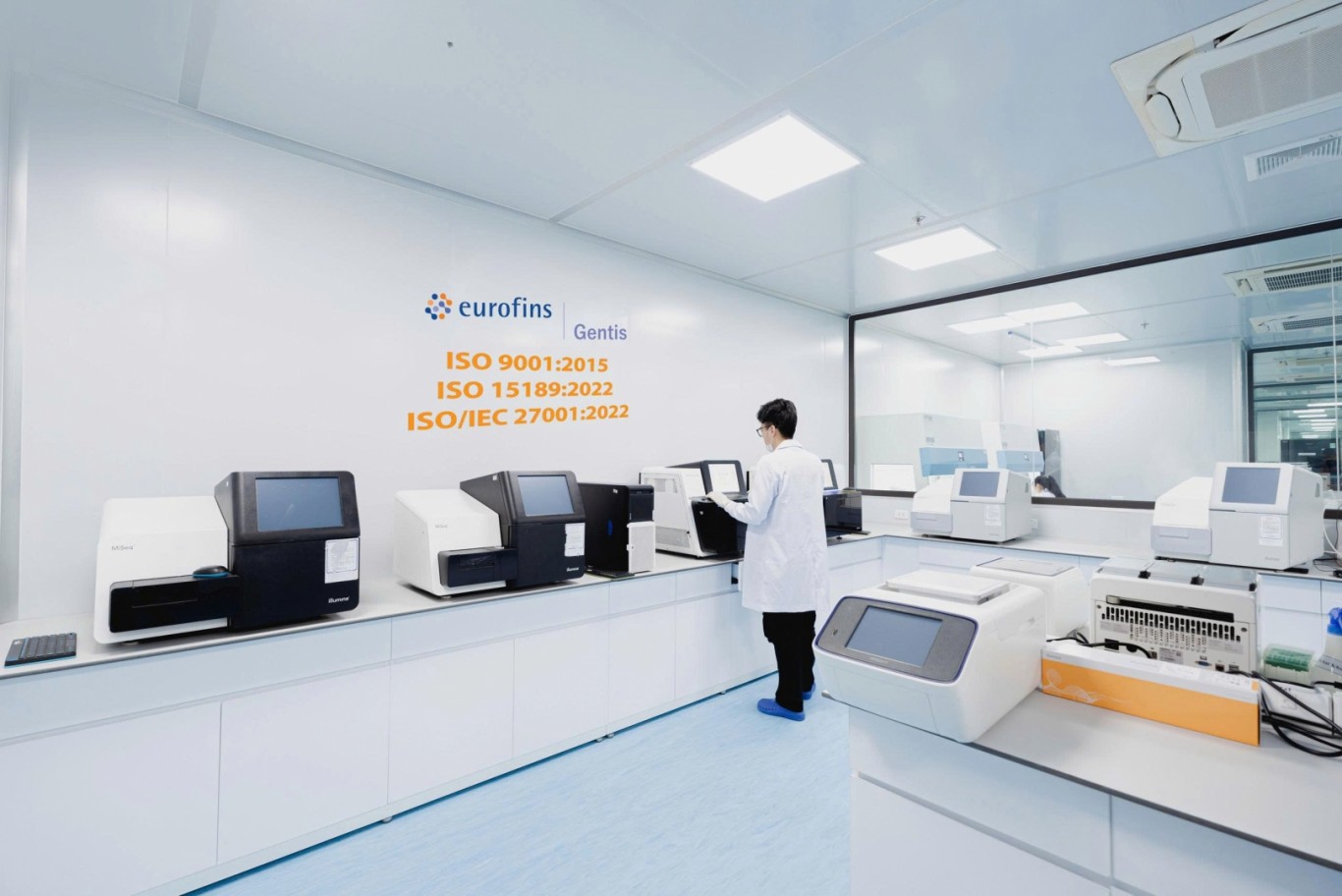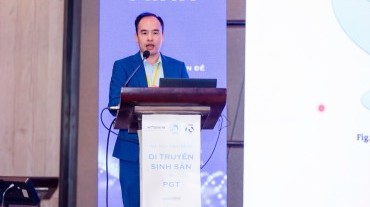1. What is PGT-M?
PGT-M is a preimplantation genetic screening test for 10 common recessive single-gene disorders. This test helps couples select embryos that do not carry the disease-causing gene mutation, thereby preventing the transmission of genetic disorders to the next generation.

Candidates indicated for PGT-M typically include couples where both partners carry mutations for diseases such as Thalassemia, spinal muscular atrophy, cystic fibrosis, etc. It is also indicated for women carrying X-linked gene mutations (e.g., Hemophilia, Duchenne/Becker muscular dystrophy). Following testing, embryos free of disease-causing genes are selected for transfer into the mother's uterus.
2. Effectiveness of Preimplantation Genetic Testing (PGT-M)
PGT testing has significantly contributed to selecting the healthiest embryos for implantation, increasing the chances of conceptions, reducing miscarriage rates, improving embryo survival rates, decreasing the number of IVF cycles needed to achieve pregnancy, lowering the risk of multiple pregnancies, reducing the incidence of single-gene disorders in offspring, and saving both time and costs associated with IVF.
Moreover, PGT-M testing also identifies abnormalities and single-gene mutations associated with several genetic syndromes such as Thalassemia (including alpha and beta thalassemia), spinal muscular atrophy (SMA), Hemophilia, Rett syndrome, polycystic kidney disease, Duchenne muscular dystrophy, congenital muscular dystrophy, and more. The effectiveness of PGT-M has been clearly demonstrated in reducing the incidence of children born with single-gene disorders and minimizing the need for mid-pregnancy terminations due to abnormal fetuses.
Preimplantation genetic screening and diagnosis for severe genetic disorders are not just personal family matters but are long-term steps involving the contribution of society and the healthcare field. It helps reduce the number of children born with congenital anomalies, serious genetic disorders, and other undesirable abnormalities in couples.
3. How is PGT-M performed at GENTIS?
Currently, PGT-M testing can be performed at hospitals or specialized centers in Vietnam. GENTIS is recognized as a unit capable of performing this technique with precision and professionalism.
 At GENTIS, PGT-M testing is conducted using advanced technological techniques, employing modern equipment (such as the Illumina NGS – USA, Veriseq PGS technology) and specialized analysis software (SNP, STR analysis methods). PGT-M is carefully developed and executed to provide highly reliable results.
At GENTIS, PGT-M testing is conducted using advanced technological techniques, employing modern equipment (such as the Illumina NGS – USA, Veriseq PGS technology) and specialized analysis software (SNP, STR analysis methods). PGT-M is carefully developed and executed to provide highly reliable results.
Combining PGT-M testing for single-gene disorder screening with PGT-A for chromosomal abnormality screening allows couples to select embryos free of genetic abnormalities for transfer into the mother's uterus. With ongoing advancements in technology, GENTIS aims to successfully research and test for other rare genetic disorders, enhancing the success of preimplantation screening and helping infertile couples give birth to healthy babies.











